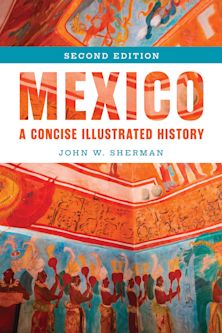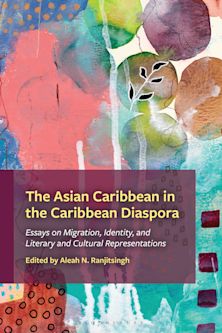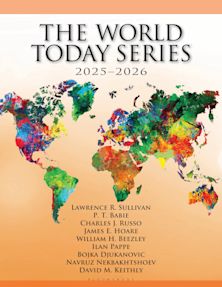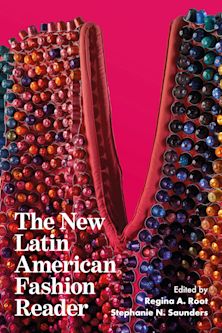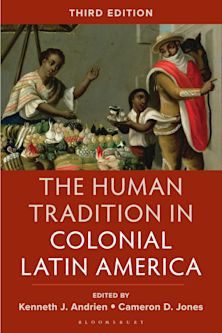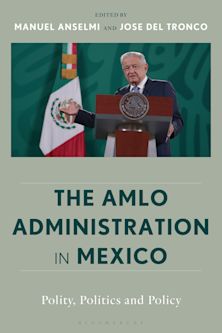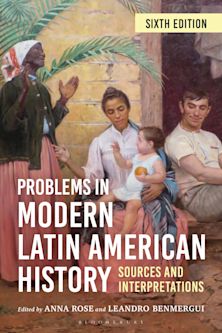- Home
- ACADEMIC
- History
- Latin American History
- The Divine Charter
The Divine Charter
Constitutionalism and Liberalism in Nineteenth-Century Mexico
The Divine Charter
Constitutionalism and Liberalism in Nineteenth-Century Mexico
This product is usually dispatched within 3 days
- Delivery and returns info
-
Free US delivery on orders $35 or over
You must sign in to add this item to your wishlist. Please sign in or create an account
Description
Although Mexico began its national life in the 1821 as one of the most liberal democracies in the world, it ended the century with an authoritarian regime. Examining this defining process, distinguished historians focus on the evolution of Mexican liberalism from the perspectives of politics, the military, the Church, and the economy. Based on extensive archival research, the chapters demonstrate that—despite widely held assumptions—liberalism was not an alien ideology unsuited to Mexico's traditional, conservative, and multiethnic society. On the contrary, liberalism in New Spain arose from Hispanic culture, which drew upon a shared European tradition reaching back to ancient Greece.
This volume provides the first systematic exploration of the evolution of Mexican liberal traditions in the nineteenth century. The chapters assess the changes in liberal ideology, the nature of federalism, efforts to create stability with a liberal monarchy in the 1860s, the Church's accommodation to the new liberal order, the role of the army and of the civil militias, the liberal tax system, and attempts to modernize the economy in the latter part of the century. Taken together, these essays provide a nuanced and comprehensive analysis of the transformation of liberalism in Mexico.
Contributions by: Christon I. Archer, William H. Beezley, Marcello Carmagnani, Manuel Chust, Brian Connaughton, Robert H. Duncan, Aldo Flores-Quiroga, Alicia Hernández Chávez, Sandra Kuntz Ficker, Andrés Reséndez, Jaime E. Rodríguez O., and José Antonio Serrano Ortega
Table of Contents
Part I: Politics
Chapter 1: From res publicae to Republic: The Evolution of Republicanism in Early Mexico
Chapter 2: "Ningún pueblo es superior a otro": Oaxaca and Mexican Federalism
Chapter 3: Masonic Connections, Pecuniary Interests, and Institutional Development Along Mexico's Far North
Chapter 4: Maximilian and the Construction of the Liberal State, 1863–1866
Chapter 5: Kaleidoscopic Views of Liberalism Triumphant, 1862–1895
Part II: The Church
Chapter 6: The Enemy Within: Catholics and Liberalism in Independent Mexico, 1821–1860
Part III: The Military
Chapter 7: The Militarization of Politics or the Politicization of the Military? The Novohispano and Mexican Officer Corps, 1810–1830
Chapter 8: Armed Citizens: The Civic Militia in the Origins of the Mexican National State, 1812–1827
Part IV: The Economy
Chapter 9: Cádiz Liberalism and Public Finances: The Direct Contributions in Mexico, 1810–1835
Chapter 10: Vectors of Liberal Economic Culture in Mexico
Chapter 11: The Import Trade Policy of the Liberal Regime in Mexico, 1870–1900
Conclusion: Legitimacy, Sequencing, and Credibility: Challenges of Mexico's Liberal Reforms in the Nineteenth Century
Product details
| Published | Aug 22 2007 |
|---|---|
| Format | Paperback |
| Edition | 1st |
| Extent | 416 |
| ISBN | 9780742537118 |
| Imprint | Rowman & Littlefield Publishers |
| Dimensions | 9 x 6 inches |
| Series | Latin American Silhouettes |
| Publisher | Bloomsbury Publishing |
About the contributors
Reviews
-
This collection will be important for specialists in Mexican political thought and in graduate seminars where future scholars will be honed. Highly Recommended.
Choice Reviews
-
The Divine Charter is a collection of solid, interesting articles.
Journal of Latin American Studies
-
The Divine Charter is a vital addition to our knowledge of Mexican history. With innovative contributions on a variety of key themes, the volume is a great aid to understanding the interplay between institutions, politics, and economic policy over the whole course of Mexico's tumultuous nineteenth century.
Peter Guardino, Indiana University













